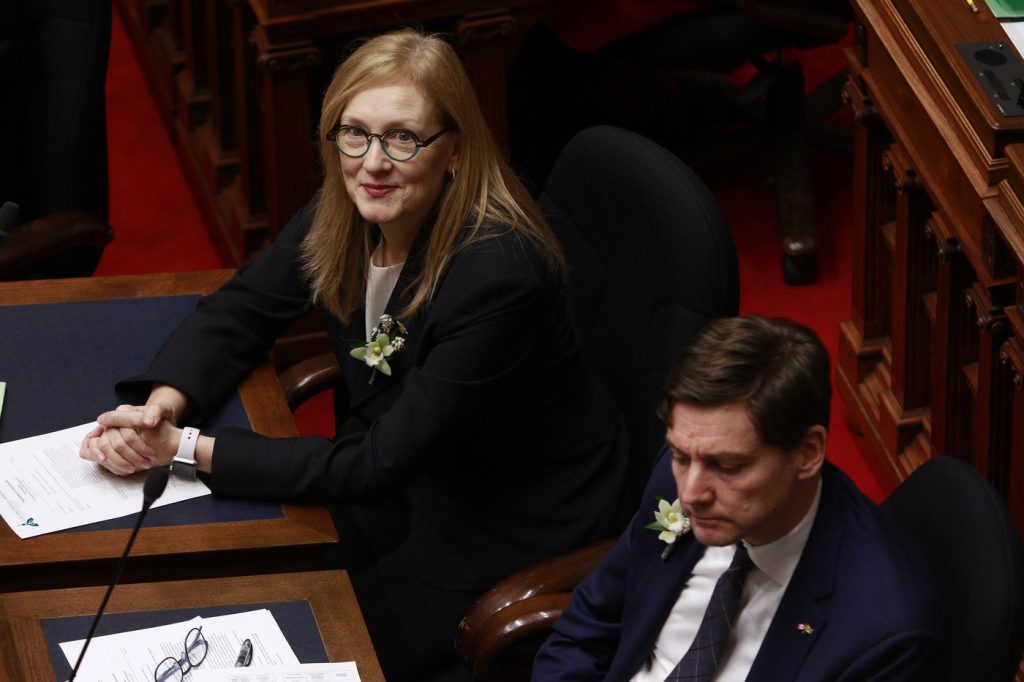VICTORIA – British Columbia's finance minister, Brenda Bailey, is set to unveil a budget today that she claims will prepare the province for a challenging four-year period filled with “uncertainty and disorder,” particularly in light of Donald Trump's presidency in the U.S. The release of this budget coincides with Trump's announcement of a 25 percent tariff on Canadian goods, along with a 10 percent tariff specifically targeting Canadian energy products.
Bailey expressed that the introduction of Trump's tariffs came as a surprise, describing the announcement last November as entirely unexpected. These tariffs have already shifted British Columbia's financial landscape, leading the provincial government to rethink its economic strategies. The New Democratic Party (NDP) government has decided to abandon its election commitment to provide a $1,000 grocery rebate to residents and has also implemented a freeze on hiring within the public sector. Premier David Eby characterized the current situation as a form of "economic warfare" initiated by Trump.
As British Columbia braces itself for what many are anticipating to be a prolonged trade conflict across North America, it faces a daunting forecast of a record deficit amounting to $9.4 billion for the current fiscal year. In her budget speech, Bailey did not shy away from acknowledging the potential for the province to encounter its first 11-figure deficit. However, she emphasized that in these uncertain times, the focus should not be on deep cuts but rather on strategic planning for future challenges.
The province's mounting deficit has already led to consequences in its credit rating. S&P Global Ratings downgraded British Columbia's credit score for the third time since 2021 last April due to the financial woes. Conversely, another major ratings agency, Moody’s, chose to maintain the province's longstanding AAA credit rating, but modified its outlook to negative, indicating growing concerns about the financial stability of British Columbia.
This budget aims to strategically navigate the financial challenges ahead while addressing the long-term implications of international tariffs and trade disputes. By prioritizing fiscal responsibility without imposing drastic cutbacks, the government hopes to stabilize British Columbia’s economy amidst inevitable changes brought on by external factors.










